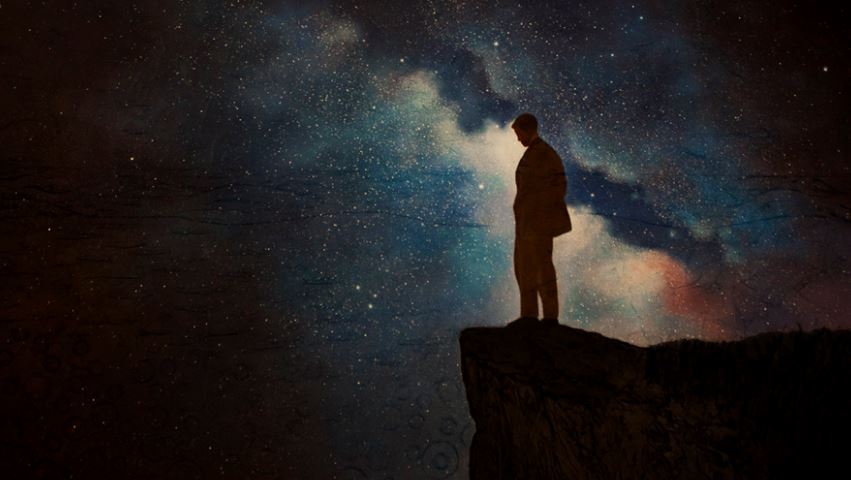
by Fr. Patrick Henry Reardon
The thinking man, if he wants his thought about freedom to be complete, must reflect—on the basis of his own experience—that freedom is inseparable from consciousness and the conscious experience of pursuing and discerning truth. If freedom is really free, it must be part of self-reflective thought, or logos; otherwise freedom would be identical with chaos. (The deliberate choice of evil or untruth is not, in the full sense, an exercise of freedom; it is an expression of willful slavery.) To say that man is truly free, then, implies that he is gifted with the ability to think reflectively. He is self-determined because he is self-conscious.
In this consideration we are touching man’s special place in the Universe. According to St. Gregory of Nyssa (335-395), this complex psychological quality is what confers on the human being his dominance over all other things. Adam was—and knew himself to be—the head of the Cosmos, its sole deliberative agent.
“Self-governed and directed autocratically by his own will,” man’s “nature was, from the beginning, crafted for royalty (tyrannis)” (De Opificio Hominis 4).
The human being, then, is not only a part of the Universe; he is also the thinking part. Human thought is the only place where the Cosmos is conscious, critical, self-reflective, and free. The human mind is the sole forum where Creation can examine itself, render an assessment, and even make cognitive adjustments as they are required.
The human being is also the only part of the created Universe where thoughts—both interpretive ideas and thoughts of resolve—are deliberately chosen. (For this reason, man is the only being capable of perverting what God has made.) Man’s mind, we noted, is conscious of being free; indeed, cognitive freedom and critical self-reflection are so bound together that man may experience them as identical.
For this reason, man’s mind is the sole portion of the Universe where “effects” cannot be adequately explained by purely physical causes. Man is innately aware of this freedom, nor does it take him very long to infer the moral responsibility it imposes upon his life. He is the only being in the Universe that can choose, but his choices are felt everywhere.
(The experience of freedom is a source of ongoing frustration in modern science. Since the methodology and presuppositions of the scientific endeavor are quantitative and objective, the very concept of “subjectivity” is troublesome. Action theorists, for instance, desperate to reconcile the experience of choice to a cause/effect model, reduce it to the category of motive, while neurologists continue to search for the “freedom gene.” Permit me to mention a penetrating critical analysis of the underlying problem: Roger Scruton, “Scientism in the Arts and Humanities,” The New Atlantis, Fall 2013, pages 33-46.)
The human being, then, is the only place where the Cosmos itself can deliberately, intentionally change its mind. Man’s organic and formal cohesion to the rest of material Creation is the reason Adam, when he fell, took the Universe down with him. For all of its brevity Genesis 3:6—
“she took of the fruit thereof, and did eat, and gave to her husband who did eat”
—identifies the metaphysical mix-up of Creation itself. When the Universe fell into confusion and death, it fell head first.
Saint Paul is explicit on this point.
“Through one man,” he wrote, “he hamartia eis ton Kosmon eiselthen, sin entered into the Cosmos, and, by sin, death” (Romans 5:12).
In Adam everything—ta panta—succumbed to mortality and metaphysical bondage, and the very Universe became a medium of confusion and corruption. From that point on, “death reigned” (5:14).
So why did God, with a view to redeeming that hopeless situation,
“give his only begotten Son”?
Very simply, says Saint John,
“because God so loved the Cosmos”— Houtos gar egapesen ho Theos to Kosmon
